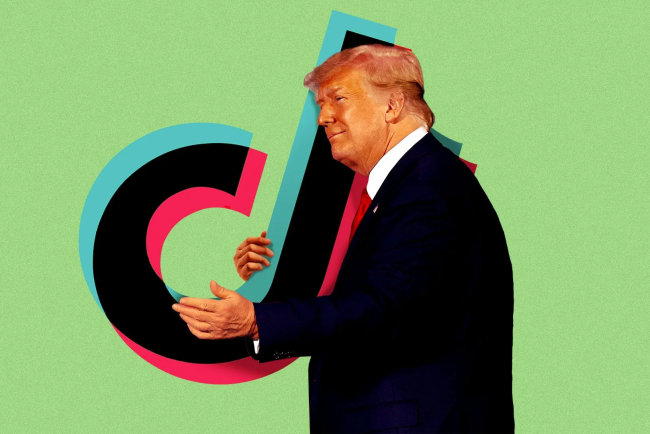Meta Faces Allegations of Illegal Data Practices
European consumer groups accuse Meta of massive, illegal data processing, breaching GDPR.

Meta Faces Accusations of Illegal Data Practices in Europe: A Detailed Analysis
Explore the allegations against Meta for illegal data processing under GDPR in Europe, uncovering the implications for digital privacy on Kiksee Magazine.
Introduction to Meta's Data Processing Controversy
In a recent turn of events, Meta, the conglomerate behind social media giants Facebook and Instagram, has been thrust into the spotlight by European consumer rights advocates. These groups allege that Meta has been engaging in extensive and unauthorized data collection practices, affecting millions of users across the continent. This article delves into the accusations, Meta's response, and the broader implications for digital privacy and data protection laws, particularly the General Data Protection Regulation (GDPR) in the European Union.
The Heart of the Accusation
The European Consumer Organisation (BEUC), representing 45 consumer groups, spearheaded the charge against Meta with eight of these groups filing official complaints to their national data protection authorities. The core of their grievance lies in Meta's purported collection of an excessive volume of user data, encompassing sensitive information like sexual orientation, emotional states, and addiction vulnerabilities—data points users cannot consent to freely, thus breaching GDPR.
Meta's Defense Strategy
Meta has countered these allegations, asserting its dedication to GDPR compliance. The company emphasizes its privacy overhaul since 2019, aiming to align its operations with stringent European data protection standards. Through collaboration with regulators and privacy experts, Meta aspires to demonstrate its commitment to safeguarding user privacy.
Potential Legal Repercussions
These complaints could signal a new chapter of legal challenges for Meta, already familiar with Europe's regulatory scrutiny. The backdrop includes a record €1.2 billion fine imposed by EU regulators for GDPR infringements, underscoring the financial and reputational stakes involved.
Norway's Stand and the Role of the Irish Data Protection Commission
Norway's Data Protection Authority has voiced significant concerns over Meta's practices, advocating for a unified regulatory response across Europe. Meanwhile, the Irish Data Protection Commission, Meta's lead European regulator, awaits the formal complaints to determine its course of action.
The "Pay or Consent" Dilemma
Recent EU directives have compelled Meta to seek explicit user consent for personal data processing related to targeted advertising. In response, Meta introduced a subscription model, allowing users to access ad-free versions of its platforms for a fee. However, this move has sparked debate over its fairness and transparency, with critics arguing that it forces users into a "pay-or-consent" bind.
BEUC's Critique of Meta's Subscription Model
The BEUC criticizes Meta's subscription service as a misleading solution that obscures its underlying data processing operations. The group contends that Meta's dominance coerces users into a service that offers little clarity on data handling changes post-subscription, thus perpetuating its invasive advertising model.
Conclusion: Navigating the Future of Digital Privacy
As Meta navigates these accusations and regulatory challenges, the situation underscores the ongoing tension between tech giants and digital privacy norms. The unfolding drama invites a broader discussion on user rights, corporate accountability, and the evolving landscape of data protection legislation.
Frequently Asked Questions
How does GDPR impact companies like Meta? GDPR imposes strict data protection requirements, including user consent and transparency about data collection practices, significantly affecting how companies like Meta operate in Europe.
What are the potential consequences for Meta if found in violation of GDPR? Meta could face hefty fines, operational restrictions, and mandatory changes to its data processing practices, impacting its business model and revenue streams.
Can users opt out of Meta's data collection practices? While Meta provides some privacy controls, the current allegations suggest that users might not have full autonomy or understanding of the consent process, especially regarding sensitive data.
What does Meta's subscription model entail? Meta's subscription model offers users an ad-free experience on its platforms for a monthly fee, introduced as a response to regulatory pressures and user privacy concerns.
How do consumer rights groups view Meta's privacy practices? Consumer rights groups, like the BEUC, view Meta's practices as invasive and non-compliant with GDPR, advocating for stronger regulatory oversight and consumer protections.
For more insightful analysis on digital privacy and tech regulations, visit Kiksee Magazine here.
Explore external resources for a deeper understanding of GDPR and digital privacy here.
Summary:
European consumer rights groups have accused Meta, the company behind Facebook and Instagram, of engaging in illegal data collection and processing practices that violate the General Data Protection Regulation (GDPR). This article explores the allegations, Meta's response, and the potential implications for data privacy and digital advertising in the EU.
What's Your Reaction?






















